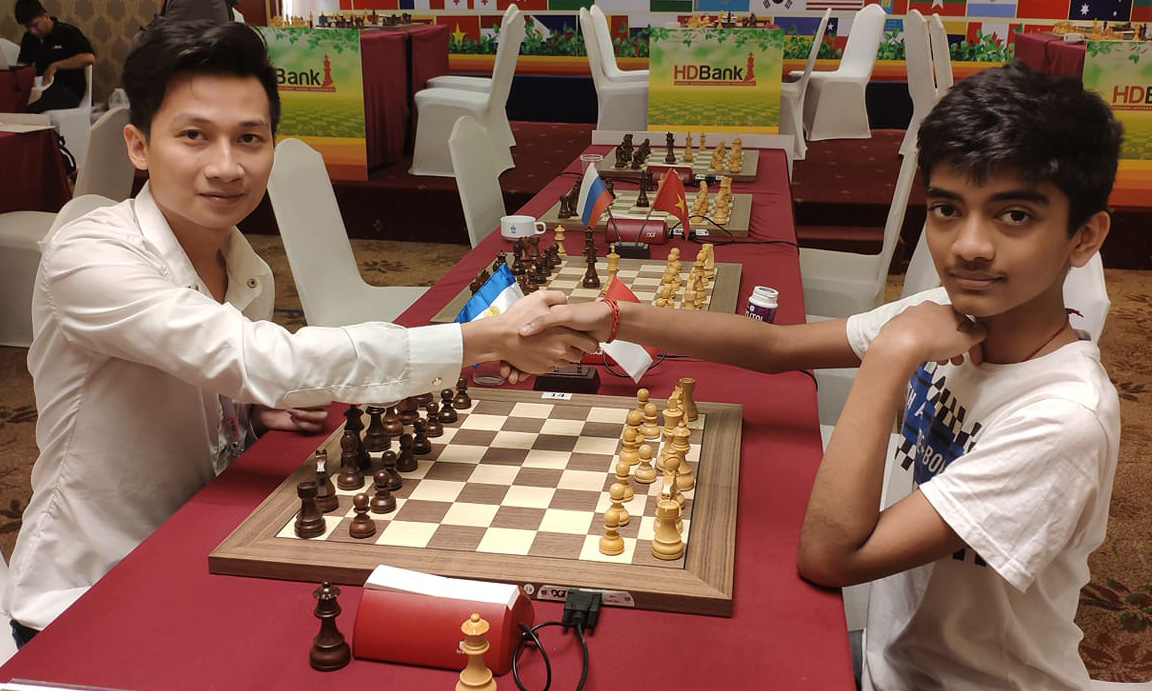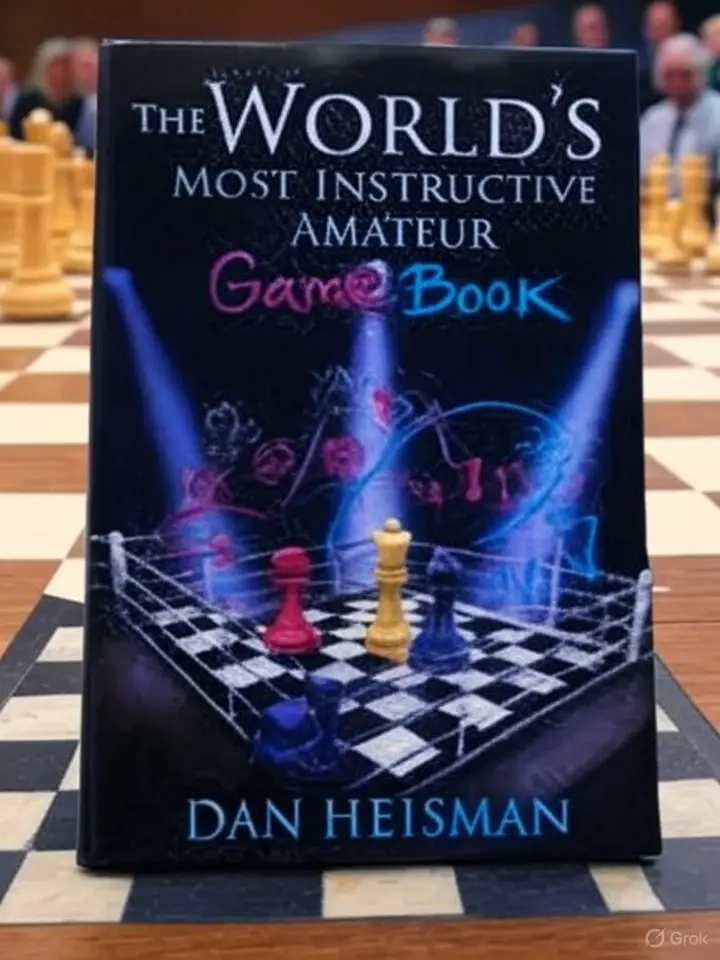If you’ve ever stared at a grandmaster game and thought, “Cool… but I would never reach this position,” then Dan Heisman wrote a book exactly for you.
The World’s Most Instructive Amateur Game Book isn’t about magic grandmaster moves. It’s about real mistakes made by real players, analyzed deeply by one of the most respected chess instructors in the world. And honestly? That’s why this book works. These are the same mistakes you’re making, just packaged inside 30 carefully chosen games.
Rated 4.8/5 by verified buyers and published by Mongoose Press, this book is one of the most practical improvement tools for players rated 800–1800. Especially if you struggle with time trouble, blunders, or failing to recognize critical positions, this book might be the most surprisingly helpful training material you’ll pick up this year.
Let’s break down exactly what you’ll learn.
What You’ll Learn From This Book
Heisman structures the entire book around how amateurs actually lose games, grouping them into themes:
1. Playing Too Fast
The first chapter is a wake-up call. These games show players collapsing simply because they move instantly. Same pattern 99% of amateurs face:
- One player snaps out moves.
- Misses an obvious tactic.
- Gets punished.
Heisman shows exactly why those split-second choices are wrong — not with vague advice, but with timestamps proving how rushed thinking leads straight to disaster.
2. Playing Too Slow
The opposite problem. Here, players overthink normal moves, drift into time trouble, and collapse. Heisman shows how to:
- Recognize critical positions.
- Allocate time correctly.
- Avoid blowing a winning position because you panicked.
3. Endgame Mistakes
Not fancy theoretical endings — real amateur endgame fails. Players push the wrong pawn, march the king to the wrong square, or miss a simple plan. Heisman explains how to think in these moments, not just what the engine says.
4. Strategic Errors
Games where players reach a decent position… and then lose because they misunderstood the structure, the trade, or the plan.
5. Total Collapses (“Disaster Strikes”)
Brutal but educational. A single oversight ends the game. Painful to watch. Essential to study.
Across all five chapters, Heisman continually returns to the biggest themes of amateur chess:
- Safety before strategy
- Critical moments deserve extra time
- Poor time management equals poor positions
- Amateurs lose not because they don’t know openings — but because they ignore basic tactics
If you’ve ever blundered in a winning position and wondered “Why does this keep happening?”, this book will practically diagnose you. You can also check out another book by Heisman here:
Best Chapters & Key Highlights
Chapter 1: Too Fast
The most relatable chapter for beginners and club players. Heisman uses timestamps like “6:43 remaining” to show how quickly a player blundered. Seeing it in black and white forces you to rethink how impulsively you play in your own games.
Chapter 2: Too Slow
Perfect if you struggle with time trouble.
The lesson: thinking for 10 minutes about a move that doesn’t matter is worse than thinking 10 seconds about a move that does matter.
Chapter 3: Endgame Mishaps
An underrated highlight. These aren’t GM-level theoretical endings — they’re “you had this position last week” endings. And Heisman explains the correct ideas in simple, actionable language.
Chapter 5: Disaster Strikes
The most fun chapter to read — like watching a train wreck in slow motion, but you learn from every blunder.
Who This Book Is For
This book is ideal for:
- 800–1800 rated players
- Anyone who struggles with blunders or missing tactics
- Anyone who gets into time trouble
- Players who want full-game explanations rather than random puzzles
- Adults returning to chess after years away
It’s not ideal for:
- Advanced players above 2000+
- Readers looking for deep theoretical openings
- Tactical puzzle lovers (this is strategic + thought-process based)
If you’re a beginner or club player, though? This is pure gold.
Reader Experience (What Players Say)
A few common reactions from players who finished the book:
“This book finally explained why I blunder — not just that I blunder.”
“Seeing timestamps completely changed the way I manage my time.”
“I used to think amateur games were useless. This book proved the opposite.”
And from Reddit discussions about Heisman’s work:
“Heisman is the only author who actually teaches how to think. Not just what to play.”
“His time management advice alone is worth more than the price of the book.”
“If you’re under 1600, this book will expose every bad habit you have.”
Quotes & Sample Ideas From the Book
Some memorable concepts that show the flavor of Heisman’s teaching:
“Safety trumps strategy almost every time.”
“A bad move after 10 seconds is not the same mistake as the same bad move after 10 minutes.”
“Most amateur games are lost — not won.”
“If you stop giving away free pieces, you’ll beat 1100s every game.”
More great reader-shared lines from Reddit / forums:
“Dan Heisman made me realize I wasn’t bad at chess — I was bad at thinking.”
“Critical positions are worth 10x more time than quiet positions.”
“Study amateur mistakes. They’re your mistakes too.”
Is It Worth Buying? (My Verdict)
Absolutely — especially if you’re under 1700.
This book teaches the real reasons club players lose:
- moving too fast
- moving too slow
- ignoring safety
- failing to identify critical moments
And instead of abstract theory, you get:
- timestamps
- real thought processes
- actionable advice
- and full, annotated games
There’s nothing else like it on the market.
Where to Buy
👉 Ready to fix your time management and eliminate amateur mistakes?
Grab The World’s Most Instructive Amateur Game Book on Amazon here (affiliate link) or get it from Forward Chess. Buying through these links supports the site at no extra cost to you.

I’m Xuan Binh, the founder of Attacking Chess, and the Deputy Head of Communications at the Vietnam Chess Federation (VCF). My chess.com and lichess rating is above 2300. Send me a challenge or message via Lichess. Follow me on Twitter (X) or Facebook.

